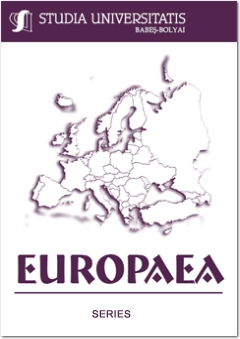FROM POST-REVOLUTIONARY TO EUROPEANIZED LENINISM: INTERSYSTEMIC REVERBERATIONS OF DE-STALINIZATION. THE CASE OF THE HUNGARIAN REVOLUTION
FROM POST-REVOLUTIONARY TO EUROPEANIZED LENINISM: INTERSYSTEMIC REVERBERATIONS OF DE-STALINIZATION. THE CASE OF THE HUNGARIAN REVOLUTION
Author(s): Emanuel COPILAȘSubject(s): History
Published by: Studia Universitatis Babes-Bolyai
Keywords: de-Stalinization; social tensions; foreign policy; ‘socialist camp’; Soviet reactions.
Summary/Abstract: For the Soviet Union, the Hungarian revolution from the fall of 1956 represented probably the most important challenge it had to face since the Nazi invasion during the Second World War. The “popular democracies” were also threatened by it to a great extent; even independent Yugoslavia, a true model for the Magyar insurgents, agreed with Khrushchev’s plan of sending Soviet troops to Budapest and forcefully reinstating communism in Hungary. This study approaches the Hungarian crisis as a consequence of the Soviet ideological metamorphosis that led from what I called post-revolutionary Leninism to Europeanized Leninism. Afterwards, Hungarian and the Suez crises are briefly compared from an international relations’ systemic perspective.
Journal: Studia Universitatis Babes-Bolyai - Studia Europaea
- Issue Year: 55/2010
- Issue No: 4
- Page Range: 5-34
- Page Count: 30
- Language: English

